There are a lot of things to still learn after you get your fabled OWS Instructor certification. I completed mine in 2021, the period of closed borders, zoom class sessions and lockdowns in New Zealand. We practiced our in-class briefings and skill demonstrations via webcam for over 4 weeks The main difference I found when changing from student to employee is you go from simulation to reality.
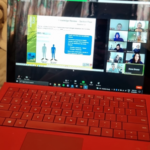
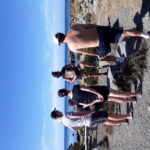
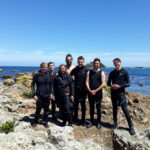
During your IDC, you regularly simulate pool and sea skills with your fellow Diploma students. Problem here, though, is that you know your fellow classmates can genuinely handle themselves under the water- but for example, if your Open water student has trouble with their mask clearing skills, they naturally may bolt for the surface. I quickly saw this first hand during a pool session on my first OWC as a dive professional.
I found that every student is different and learns in a different way, and making your students comfortable and less anxious actually begins with a warm introduction. A few questions like “Where are you from?”, “What interests you about diving?” goes a long way. The same thing works when the actual course is starting: “How do you normally study?”, “What was the last course you did?”, “What did you like most about that teacher?” – adapt and ask if this is how they like it.
I found that if somebody was nervous, I could be closer to them on the surface and under the water. The more you are teaching in their comfort zone, the faster they fly through their course!
One of my first students, we’ll call him Hēmi, during the meet and greet he was particularly nervous. He told me that he was really quite anxious about the first mask clearing skill, so when I came round to get him to clear his mask, I stayed extra close. My hand on his BCD the whole time for his reassurance, a reminder for him to breathe and karawhiua! (Go for it!)
Hēmi then surprised me by nailing the skill first time. Boy, was I proud. I threw Hēmi a massive fist bump, and he was equally ecstatic! He carried this momentum forward through the rest of his skills and was a great student.
What I’ve taken away from this, and the transition from simulation to reality, is that each new student and OWC is a case by case situation and students are all individuals, with passions, fears, feelings and resilience. In conclusion, I will leave you with this whakataukī (proverb)
He aha te mea nui o te Ao?
He tangata, he tangata, he tangata
What is the most important thing in the world?
The people, the people, the people
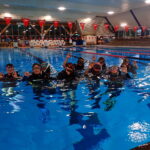
OLYMPUS DIGITAL CAMERA
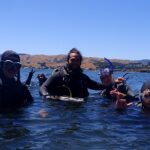
OLYMPUS DIGITAL CAMERA
